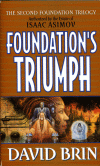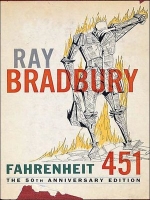
A few months ago a co-worker of mine suggested that I read The Age of Spiritual Machines: When Computers Exceed Human Intelligence by Ray Kurzweil. We had been talking about AI and he mentioned that this was an interesting read. I wasn’t sure exactly what to expect, as I had never heard of Kurzweil before. After a few Google searches I got the impression that he was a quirky futurist.
This book was published back in 1999 and by the end looks very much like science fiction. Many of his predictions are founded on some sort of research. I can see how they would have seemed a bit “out there” almost 10 years ago. I wondered how many of his predictions would hold up. Central to his philosophy is the Law of Accelerating Returns. In short, technology will continue to progress ever faster as time goes on. He displays an interesting graph of the exponential increase of computational power in various models of computers over time. The line is slightly curved upward, which represents an increase in exponential growth over time. So, according to Kurzweil computation is progressing exponentially exponentially faster.
Along with his Law of Accelerating Returns is the prediction that in the not so distant future computerized personalities will demand rights of their own. This won’t be a development that takes place overnight though. The lines will be blurred between human and machine as technology is utilized to augment the abilities of humans. Eventually, Kurzweil suggests, human minds will be able to be transferred into computers. These minds will insist that they are the original, along with a slew of other ramifications. Since computerized minds won’t be limited to the relatively slow computational speed of neuron impulses, a new type of life form will emerge. In addition to transferred personalities, entirely artificial personas will be developed and flourish as well.
Throughout this narrative a fictional character interjects, conversing with Kerweil about the various topics that he covers. The concept seems a bit novel at first, but gets annoying toward the end with his sections that have predictions for 2009, 2019, 2029, and 2099. They are almost entirely conversations between him and his character named Molly which somehow talks to him from the future as he’s writing the book through what he calls “poetic license.”
I was curious how his predictions for 2009 would be, since we are only a year away from that. He seems pretty close in some areas like wireless technology, solid state memory, distance education, and digital distribution of media. Quite a few other predictions are eerily accurate now, or are already being worked on. He is overzealous in his approximation of how advanced speech recognition software will advance. This could be because he is one of the pioneers in that area. According to him, almost all input will be done with continuous speech recognition software (CSR) and there will be language translating telephones along the lines of the universal translator from Star Trek. The progression of bandwidth and the Internet is also way off the mark.
His predictions for 2019 and beyond seem to follow the Law of Increasingly Weird. At least for 2019, most things are fairly unbelievable, but some are actually very close to the mark even today. For example, he predicts that direct-eye displays will be common, which are already being worked on [see Bionic Eye Adds Computing Power to Sight] . Also, he predicts that paraplegic and some quadriplegic people will be able to walk using nerve stimulated exoskeletal devices. We aren’t quite to the point where people can walk using these, but are already significant advances in developing bionic arms. [See The World’s Most Advanced Bionic Arm].
With so many predictions, it is hard to imagine he’d be incorrect about all of them. Kurzweil does not claim that everything he says will come to be. He goes as far as to compare his predictions from The Age of Intelligent Machines published back in 1990. He points out how many of his predictions went wrong, but isn’t afraid to pat himself on the back for the ones he did get right. He’s adjusted his predictions in this book, and it appears that he’s adjusted them further in his 2005 book The Singularity is Near.
Despite the somewhat outlandish predictions, this was a very interesting read. The only thing that really bothered me was the self-congratulatory tone he takes when talking to his imaginary character Molly. If you can get past that, the pages will go by very quickly. For those without the patience to read the whole book, Wikipedia has a fairly concise synopsis of Ray Kurzweil’s predictions.



I read Fantastic Voyage, The Age of Spiritual Machines and The Singularity is Near, and they changed my life. I even found some of his lectures on Itunes and I find myself impatiently awaiting his next book.
Recently read another incredible book that I can’t recommend highly enough, especially to all of you who also love Ray Kurzweil’s work. The book is “”My Stroke of Insight”” by Dr. Jill Bolte Taylor. I had heard Dr Taylor’s talk on the TED dot com site and I have to say, it changed my world. It’s spreading virally all over the internet and the book is now a NYTimes Bestseller, so I’m not the only one, but it is the most amazing talk, and the most impactful book I’ve read in years. (Dr T also was named to Time Magazine’s 100 Most Influential People and Oprah had her on her Soul Series last month and I hear they’re making a movie about her story so you may already have heard of her)
If you haven’t heard Dr Taylor’s TEDTalk, that’s an absolute must. The book is more and deeper and better, but start with the video (it’s 18 minutes). Basically, her story is that she was a 37 yr old Harvard brain scientist who had a massive stroke in the left hemisphere of her brain. Because of her knowledge of how the brain works, and thanks to her amazingly loving and kind mother, she eventually fully recovered (and that part of the book detailing how she did it is inspirational).
There’s a lot of learning and magic in the book, but the reason I so highly recommend My Stroke of Insight to this discussion, is because we have powerfully intelligent left brains that are rational, logical, sequential and grounded in detail and time, and then we have our kinesthetic right brains, where we experience intuition and peace and euphoria. Now that Kurzweil has got us taking all those vitamins and living our best “”Fantastic Voyage”” , the absolute necessity is that we read My Stroke of Insight and learn from Dr Taylor how to achieve balance between our right and left brains. Enjoy!